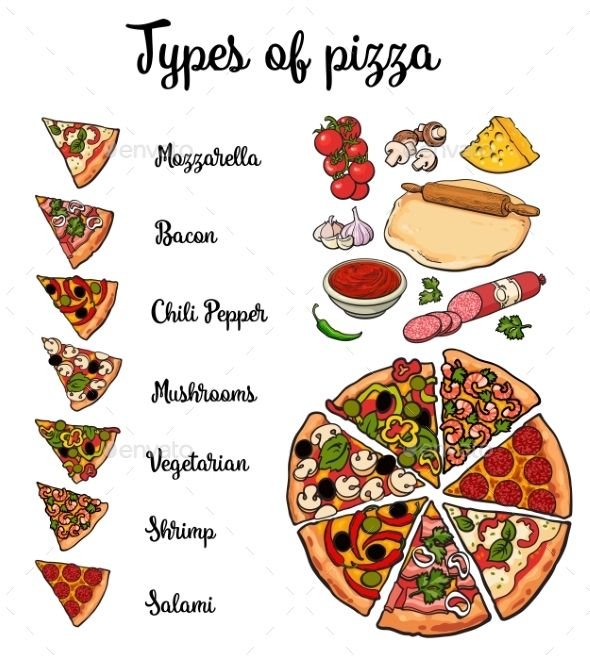“Pizza Nutrition: Healthy Options” explores how pizza can be enjoyed as a nutritious meal by making mindful ingredient choices and preparation methods. Here’s a guide to understanding pizza nutrition and making healthier choices:
1. Choosing the Right Crust
Whole Wheat Crust:
- Fiber Content: Higher fiber content compared to refined flour crusts, promoting digestive health and satiety.
- Lower Glycemic Index: Helps regulate blood sugar levels and may reduce the risk of type 2 diabetes.
Cauliflower Crust:
- Gluten-Free Option: Suitable for individuals with gluten intolerance or sensitivity.
- Lower in Carbs: Provides fewer carbohydrates compared to traditional crusts, supporting low-carb diets.
2. Lighter Cheese Options
Part-Skim Mozzarella:
- Reduced Fat: Lower fat content compared to full-fat cheeses, decreasing overall calorie intake.
- Calcium Source: Provides essential calcium for bone health without excess saturated fats.
Goat Cheese or Feta:
- Flavor Boost: Adds tanginess and richness with less saturated fat than traditional cheeses.
- Lactose Sensitivity: Easier digestion for those with lactose intolerance.

3. Nutrient-Rich Toppings
Lean Proteins:
- Grilled Chicken or Turkey: High in protein and lower in saturated fats compared to processed meats.
- Seafood: Incorporate shrimp, salmon, or tuna for omega-3 fatty acids and essential minerals.
Abundant Veggies:
- Colorful Varieties: Bell peppers, spinach, tomatoes, and mushrooms provide vitamins, minerals, and antioxidants.
- Fresh Herbs: Enhance flavor without added calories or sodium, contributing to overall health benefits.
4. Smart Sauce Choices
Tomato-Based Sauces:
- Lycopene Source: Rich in antioxidants, supporting heart health and immune function.
- Low-Sodium Options: Reduce sodium intake by choosing sauces with minimal added salt.
Pesto or Olive Oil Drizzle:
- Healthy Fats: Provide monounsaturated fats that support cardiovascular health.
- Flavor Enhancement: Add zest and richness without excessive calories or sodium.
5. Portion Control and Moderation
Mindful Serving Sizes:
- Single Slice Approach: Monitor portion sizes to avoid overconsumption of calories and fats.
- Balance with Salads or Soups: Pair pizza with a side salad or vegetable-based soup for added nutrition and satiety.
6. Homemade and Customizable Options
DIY Pizza Nights:
- Family-Friendly: Involve children in making their pizzas with wholesome ingredients.
- Control Over Ingredients: Customize toppings to meet individual dietary preferences and nutritional needs.
7. Baking Methods
Bake vs. Fry:
- Oven-Baked: Use baking methods to reduce added fats and oils compared to frying.
- Temperature Control: Ensure even cooking while preserving flavors and nutrients.
8. Hydration and Balanced Diet
Water Intake:
- Stay Hydrated: Drink water alongside pizza to aid digestion and maintain overall hydration levels.
- Balanced Plate: Include a variety of food groups in meals to ensure comprehensive nutrient intake.
9. Label Reading and Nutrition Awareness
Nutritional Labels:
- Sodium Content: Monitor sodium levels to maintain heart health and reduce bloating.
- Added Sugars: Limit added sugars in sauces and crusts to support weight management and dental health.
10. Enjoyment and Sustainability
Moderation: Indulge in pizza occasionally as part of a balanced diet and active lifestyle.
- Social Eating: Share pizzas with friends and family, focusing on enjoyment and cultural appreciation.
Conclusion
“Pizza Nutrition: Healthy Options” demonstrates that pizza can be a nutritious and enjoyable meal choice when made with thoughtful ingredient selections and preparation methods. By incorporating whole grains, lean proteins, abundant vegetables, and smart sauces, pizza becomes a satisfying dish that aligns with dietary goals and supports overall well-being. Whether enjoyed at home, in restaurants, or as part of social gatherings, making informed choices empowers individuals to savor pizza while maintaining a healthy lifestyle.




